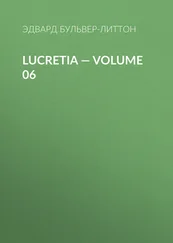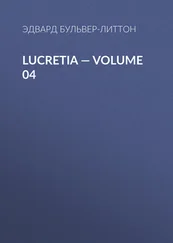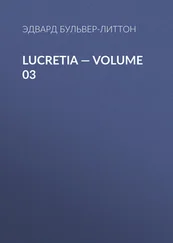Эдвард Бульвер-Литтон - Pelham — Volume 01
Здесь есть возможность читать онлайн «Эдвард Бульвер-Литтон - Pelham — Volume 01» — ознакомительный отрывок электронной книги совершенно бесплатно, а после прочтения отрывка купить полную версию. В некоторых случаях можно слушать аудио, скачать через торрент в формате fb2 и присутствует краткое содержание. Жанр: Альтернативная история, literature_19, Европейская старинная литература, foreign_antique, foreign_prose, Исторические приключения, на английском языке. Описание произведения, (предисловие) а так же отзывы посетителей доступны на портале библиотеки ЛибКат.
- Название:Pelham — Volume 01
- Автор:
- Жанр:
- Год:неизвестен
- ISBN:нет данных
- Рейтинг книги:5 / 5. Голосов: 1
-
Избранное:Добавить в избранное
- Отзывы:
-
Ваша оценка:
- 100
- 1
- 2
- 3
- 4
- 5
Pelham — Volume 01: краткое содержание, описание и аннотация
Предлагаем к чтению аннотацию, описание, краткое содержание или предисловие (зависит от того, что написал сам автор книги «Pelham — Volume 01»). Если вы не нашли необходимую информацию о книге — напишите в комментариях, мы постараемся отыскать её.
Pelham — Volume 01 — читать онлайн ознакомительный отрывок
Ниже представлен текст книги, разбитый по страницам. Система сохранения места последней прочитанной страницы, позволяет с удобством читать онлайн бесплатно книгу «Pelham — Volume 01», без необходимости каждый раз заново искать на чём Вы остановились. Поставьте закладку, и сможете в любой момент перейти на страницу, на которой закончили чтение.
Интервал:
Закладка:
Baron Edward Bulwer Lytton
Pelham — Volume 01
CHAPTER I
Ou peut-on etre mieux qu'au sein de sa famille?
[Where can on be better than in the bosom of one's family?]
I am an only child. My father was the younger son of one of our oldest earls; my mother the dowerless daughter of a Scotch peer. Mr. Pelham was a moderate whig, and gave sumptuous dinners; Lady Frances was a woman of taste, and particularly fond of diamonds and old china.
Vulgar people know nothing of the necessaries required in good society, and the credit they give is as short as their pedigree. Six years after my birth, there was an execution in our house. My mother was just setting off on a visit to the Duchess of D_____; she declared it was impossible to go without her diamonds. The chief of the bailiffs declared it was impossible to trust them out of his sight. The matter was compromised— the bailiff went with my mother to C___, and was introduced as my tutor. "A man of singular merit," whispered my mother, "but so shy!" Fortunately, the bailiff was abashed, and by losing his impudence he kept the secret. At the end of the week, the diamonds went to the jeweller's, and Lady Frances wore paste.
I think it was about a month afterwards that a sixteenth cousin left my mother twenty thousand pounds. "It will just pay off our most importunate creditors, and equip me for Melton," said Mr. Pelham.
"It will just redeem my diamonds, and refurnish the house," said Lady Frances.
The latter alternative was chosen. My father went down to run his last horse at Newmarket, and my mother received nine hundred people in a Turkish tent. Both were equally fortunate, the Greek and the Turk; my father's horse lost, in consequence of which he pocketed five thousand pounds; and my mother looked so charming as a Sultana, that Seymour Conway fell desperately in love with her.
Mr. Conway had just caused two divorces; and of course, all the women in London were dying for him—judge then of the pride which Lady Frances felt at his addresses. The end of the season was unusually dull, and my mother, after having looked over her list of engagements, and ascertained that she had none remaining worth staying for, agreed to elope with her new lover.
The carriage was at the end of the square. My mother, for the first time in her life, got up at six o'clock. Her foot was on the step, and her hand next to Mr. Conway's heart, when she remembered that her favourite china monster and her French dog were left behind. She insisted on returning—re-entered the house, and was coming down stairs with one under each arm, when she was met by my father and two servants. My father's valet had discovered the flight (I forget how), and awakened his master.
When my father was convinced of his loss, he called for his dressing- gown—searched the garret and the kitchen—looked in the maid's drawers and the cellaret—and finally declared he was distracted. I have heard that the servants were quite melted by his grief, and I do not doubt it in the least, for he was always celebrated for his skill in private theatricals. He was just retiring to vent his grief in his dressing-room, when he met my mother. It must altogether have been an awkward rencontre, and, indeed, for my father, a remarkably unfortunate occurrence; for Seymour Conway was immensely rich, and the damages would, no doubt, have been proportionably high. Had they met each other alone, the affair might easily have been settled, and Lady Frances gone off in tranquillity;— those d—d servants are always in the way!
I have, however, often thought that it was better for me that the affair ended thus,—as I know, from many instances, that it is frequently exceedingly inconvenient to have one's mother divorced.
I have observed that the distinguishing trait of people accustomed to good society, is a calm, imperturbable quiet, which pervades all their actions and habits, from the greatest to the least: they eat in quiet, move in quiet, live in quiet, and lose their wife, or even their money, in quiet; while low persons cannot take up either a spoon or an affront without making such an amazing noise about it. To render this observation good, and to return to the intended elopement, nothing farther was said upon that event. My father introduced Conway to Brookes's, and invited him to dinner twice a week for a whole twelvemonth.
Not long after this occurrence, by the death of my grandfather, my uncle succeeded to the title and estates of the family. He was, as people justly observed, rather an odd man: built schools for peasants, forgave poachers, and diminished his farmers' rents; indeed, on account of these and similar eccentricities, he was thought a fool by some, and a madman by others. However, he was not quite destitute of natural feeling; for he paid my father's debts, and established us in the secure enjoyment of our former splendour. But this piece of generosity, or justice, was done in the most unhandsome manner; he obtained a promise from my father to retire from Brookes's, and relinquish the turf; and he prevailed upon my mother to take an aversion to diamonds, and an indifference to china monsters.
CHAPTER II
Tell arts they have no soundness,
But vary by esteeming;
Tell schools they want profoundness,
And stand too much on seeming.
If arts and schools reply,
Give arts and schools the lie.
At ten years old I went to Eton. I had been educated till that period by my mother, who, being distantly related to Lord_____, (who had published "Hints upon the Culinary Art"), imagined she possessed an hereditary claim to literary distinction. History was her great forte; for she had read all the historical romances of the day, and history accordingly I had been carefully taught.
I think at this moment I see my mother before me, reclining on her sofa, and repeating to me some story about Queen Elizabeth and Lord Essex; then telling me, in a languid voice, as she sank back with the exertion, of the blessings of a literary taste, and admonishing me never to read above half an hour at a time for fear of losing my health.
Well, to Eton I went; and the second day I had been there, I was half killed for refusing, with all the pride of a Pelham, to wash tea-cups. I was rescued from the clutches of my tyrant by a boy not much bigger than myself, but reckoned the best fighter, for his size, in the whole school. His name was Reginald Glanville: from that period, we became inseparable, and our friendship lasted all the time he stayed at Eton, which was within a year of my own departure for Cambridge.
His father was a baronet, of a very ancient and wealthy family; and his mother was a woman of some talent and more ambition. She made her house one of the most recherchee in London. Seldom seen at large assemblies, she was eagerly sought after in the well winnowed soirees of the elect. Her wealth, great as it was, seemed the least prominent ingredient of her establishment. There was in it no uncalled for ostentation—no purse- proud vulgarity—no cringing to great, and no patronizing condescension to little people; even the Sunday newspapers could not find fault with her, and the querulous wives of younger brothers could only sneer and be silent.
"It is an excellent connexion," said my mother, when I told her of my friendship with Reginald Glanville, "and will be of more use to you than many of greater apparent consequence. Remember, my dear, that in all the friends you make at present, you look to the advantage you can derive from them hereafter; that is what we call knowledge of the world, and it is to get the knowledge of the world that you are sent to a public school."
Читать дальшеИнтервал:
Закладка:
Похожие книги на «Pelham — Volume 01»
Представляем Вашему вниманию похожие книги на «Pelham — Volume 01» списком для выбора. Мы отобрали схожую по названию и смыслу литературу в надежде предоставить читателям больше вариантов отыскать новые, интересные, ещё непрочитанные произведения.
Обсуждение, отзывы о книге «Pelham — Volume 01» и просто собственные мнения читателей. Оставьте ваши комментарии, напишите, что Вы думаете о произведении, его смысле или главных героях. Укажите что конкретно понравилось, а что нет, и почему Вы так считаете.












